Economists’ opinions now
In retrospect, how do economists evaluate what happened in 2015? Here are some examples: Professors Jeff Sachs (Columbia) and James K. Galbraith (Texas): “Thomas Wieser’s claim that Yanis Varoufakis and the Greek government of 2015 cost their economy 200 billion euros is ludicrous. As Wieser knows – because he was one of the architects of […] Read more
Euroleaks Trailer
On 15th June 2017, nearly two years after Yanis Varoufakis had resigned as Minister of Finance, the Eurogroup published yet another statement on Greece, which shows that nothing has changed. Below we quote it with Varoufakis’ annotations as per his 2017 blog post. Back in August 2015, while sitting gloomily in the Greek Parliament during […] Read more
The Eurogroup Made Simple
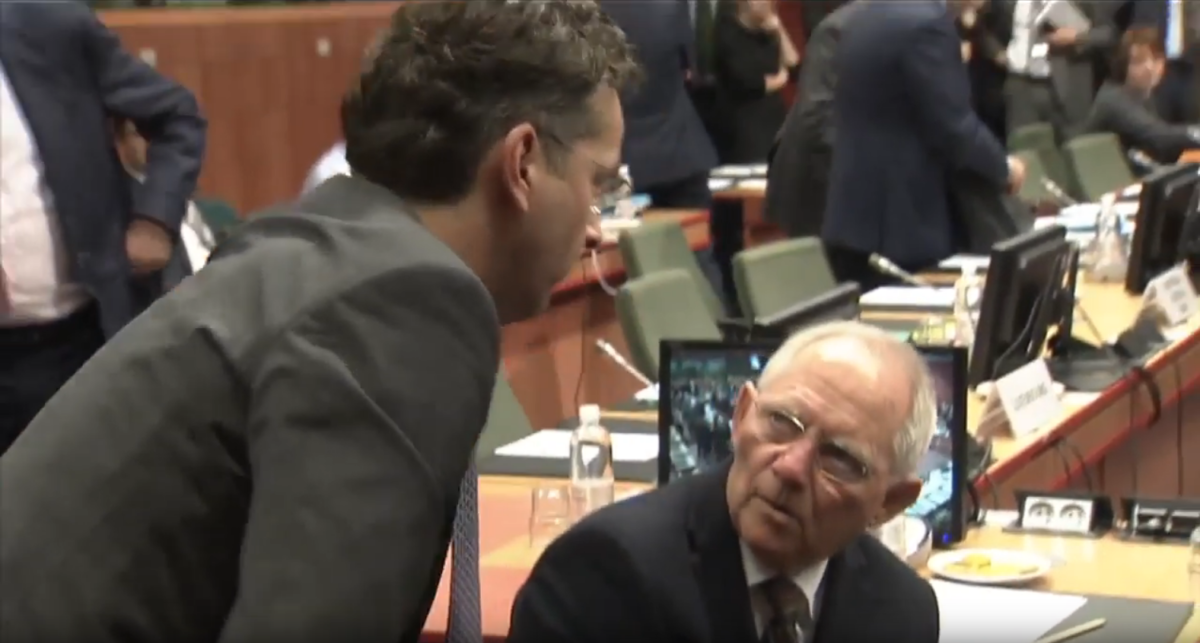
The Eurozone is the largest and most important macro-economy in the world. And yet, this gigantic macro-economy features only one institution that has legal status: the European Central Bank, whose charter specifies what powers the Frankfurt-based institution has in its pursuit of a single objective: price stability. Which leaves the question begging: “What about economic […] Read more

Annotations by Yanis Varoufakis in square brackets. [For a pdf copy click here.] Euro Summit Statement Brussels, 12 July 2015 The Euro Summit stresses the crucial need to rebuild trust with the Greek authorities [i.e. the Greek government must introduce new stringent austerity directed at the weakest Greeks that have already suffered grossly] as a […] Read more
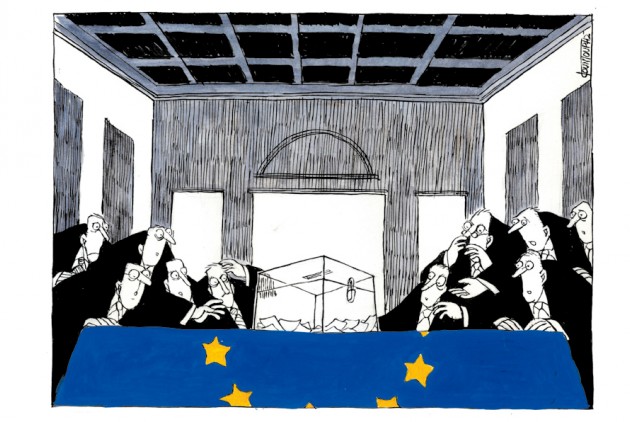
(Repost from Yanis Varoufakis’ blog) On the 5th of July 2015 the people of Greece wrote a stupendous chapter in the annals of the global struggle for democracy. It should be remembered as such, independently of what happened next. For, during these three days that shook Europe, They turned a deaf ear to the local oligarchy’s hysterical […] Read more
What happened after the last Eurogroup
July 1st, 2015: Varoufakis explains why he advocates to vote NO in the referendum July 5th, 2015: Despite the banks being closed and massive media propaganda for the YES, the NO (Greek “OXI”) unexpectedly wins by over 61%. July 6th, 2015: After learning that Prime Minister Tsipras intends to squander this capital and capitulate, Varoufakis […] Read more
1 July – Eurogroup Teleconference
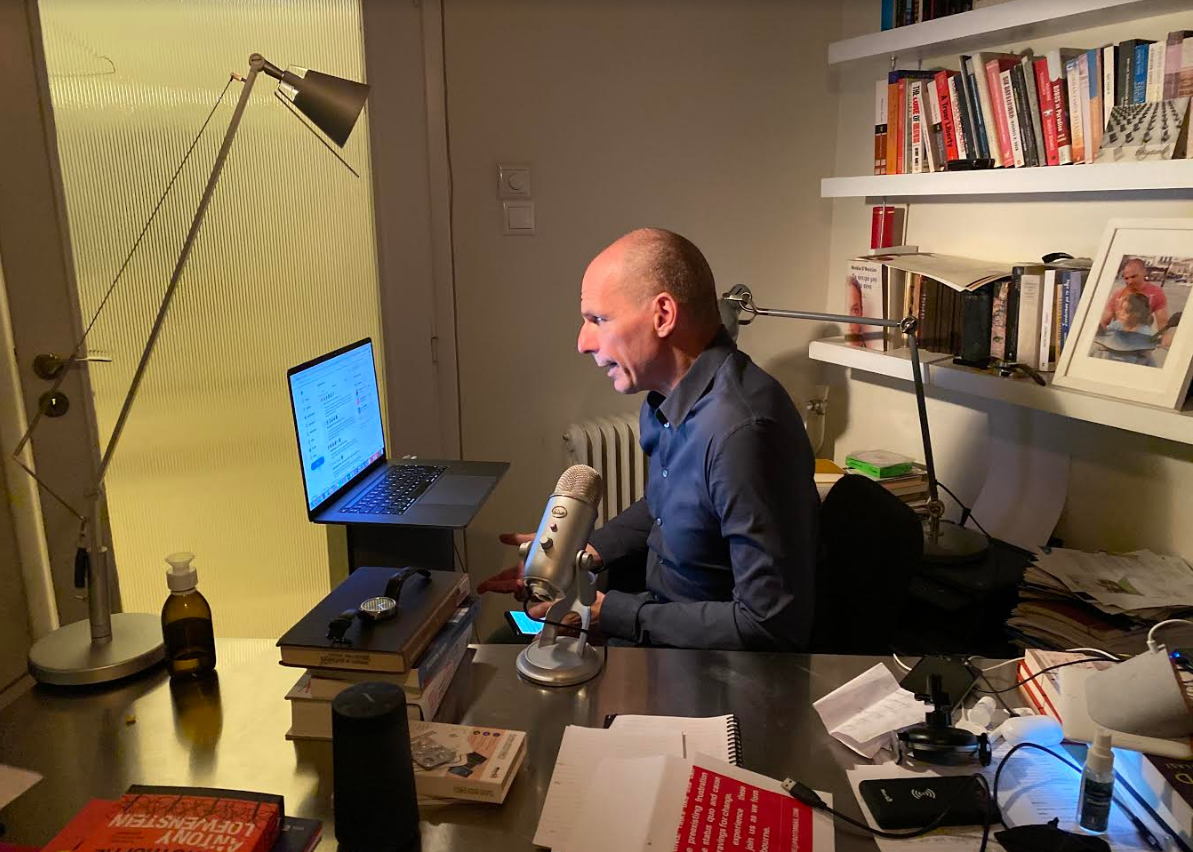

Jeroen Dijsselbloem Now, let’s see who is on the line. Ireland? Germany? (inaudible greetings) Jeroen Dijsselbloem (01:42): Colleagues, Jeroen here. Are we complete? Anyone still missing? Male: – Jeroen, we are missing Germany. We have sent a message. Jeroen Dijsselbloem: We’ll wait for a few seconds. We picked this time especially for Wolfgang. So…we ll […] Read more
30 June – Eurogroup Teleconference


Thomas Wieser (00:00): … [inaudible 00:00:00] on the political willingness to agree and to implement. Um, all of this, uh, was focused very largely, uh, around, uh, the question of a new ESM program, uh, which is being applied for. As you said, uh, there is also the issue, uh, of, uh, EFSF, uh, program […] Read more
27 June – Eurogroup in Brussels
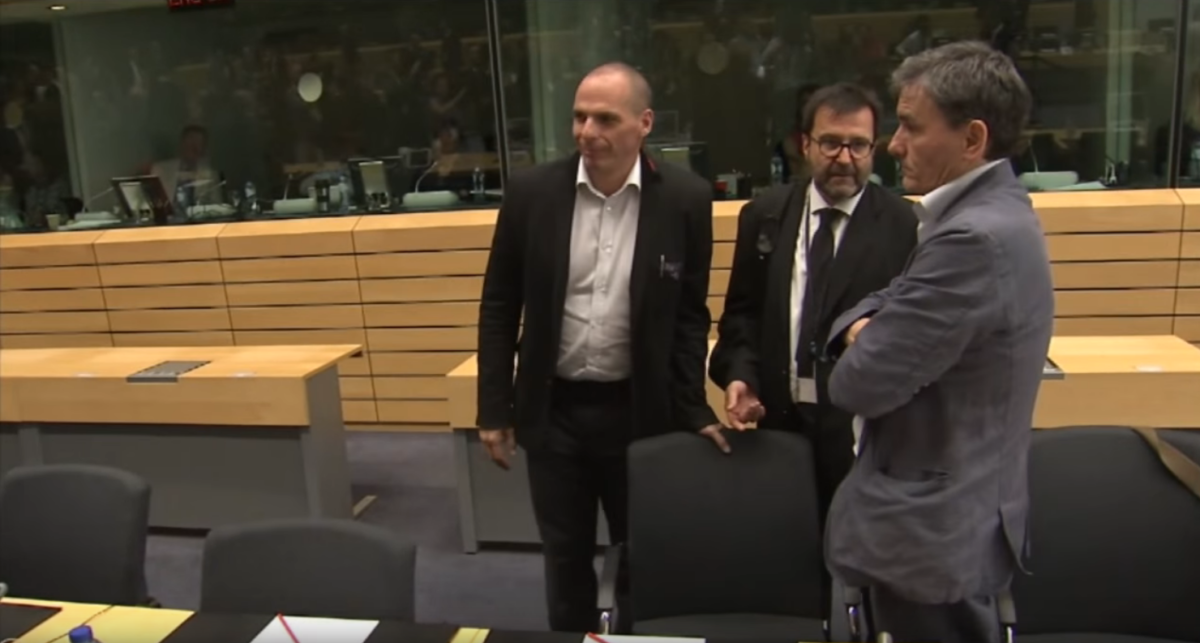

Jeroen Dijsselbloem (00:00:01): … uh, among whom of course, uh, Yanis, prepare the meeting. Um, I think given the situation where we are in now, in our last meeting we had on the table a set of papers, a common position of the three institutions. After having put those on the table, they were last […] Read more
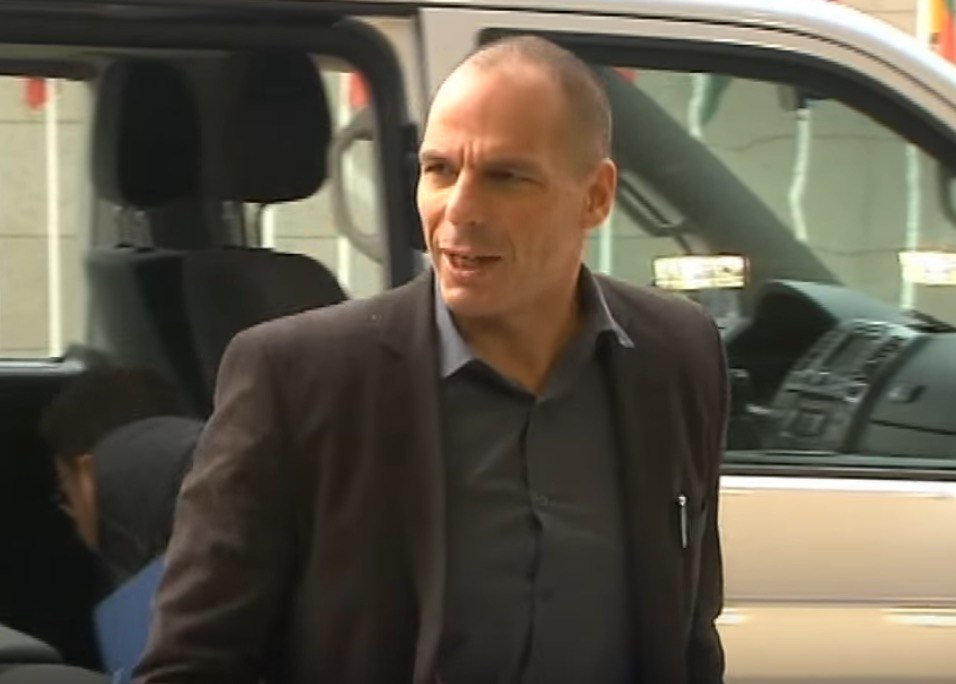
On the night of the 25th June, Varoufakis wrote this letter of resignation, anticipating that within hours PM Tsipras’ concessions, amounting to surrender, would lead to an agreement with the troika – an agreement that Varoufakis could not live with. However, on 25th June, the troika refused to acknowledge PM Tsipras’ white flag – forcing […] Read more
25 June – Eurogroup in Brussels – Part 2
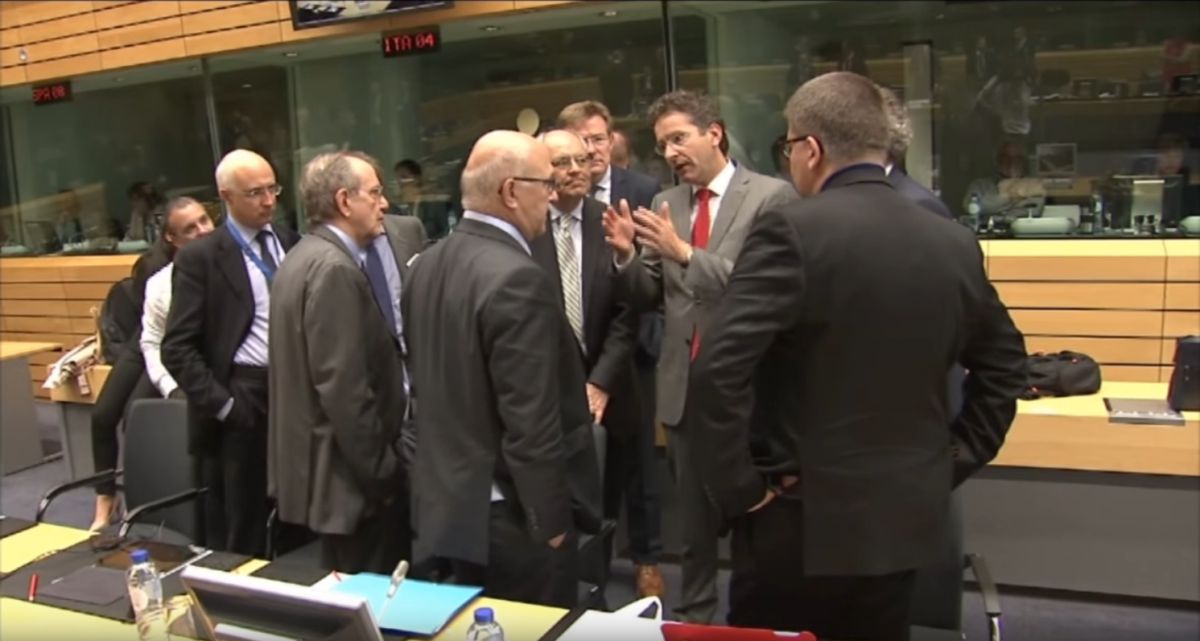

Jeroen Dijsselbloem (00:14): My colleagues, thanks for your, your patience. We are in a very difficult situation in which the stakes are high… risks are high for all of us, yet we have not come to agreement. The papers, presented by the institutions, are not proposals, so I cannot ask your, will, not ask you, […] Read more
25 June – Eurogroup in Brussels – Part 1


Jeroen Dijsselbloem: (00:00:02): As I said we have not uh, have, we don’t have uh, agreement from the Greek authorities on these papers. Jeroen Dijsselbloem: (00:00:09): As they will reflect on their opposition later on. I would first like to ask um, the three institutions, the Commission, the ECB and the IMF, to reflect on […] Read more
24 June – Eurogroup in Brussels


Speaker 1 (00:00:00): … conditions restoring [inaudible] to the Greek economy. Thank you. Jeroen Dijsselbloem (00:00:00): Christine Lagarde (00:00:00): Thank you very much, Jeroen. Um, I can very happily confirm what Pierre has just indicated, which is that on the review of the prior action list, the three institutions are exactly on the same page. […] Read more
22 June – Eurogroup in Brussels


Benoît Cœuré (00:00:15): Details that gathered and for framework [inaudible] and it is uh [inaudible] this time. Um we have some of the measures to be more friendly, and less geared towards, the [inaudible] resolution [inaudible]. Uh. There is also some uh, um lack of [inaudible] on the construction of reforms. The documents is very […] Read more
By 22nd June, Varoufakis was utterly at odds with PM Tsipras whose continual concessions to the troika meant acquiescence on most fronts, including crucially debt restructuring. In this document Varoufakis attempted to introduce moderate restructuring operations that, while insufficient, would have reduced some of the debt burden at no cost to the creditors. Read the […] Read more
18 June – Eurogroup in Luxembourg
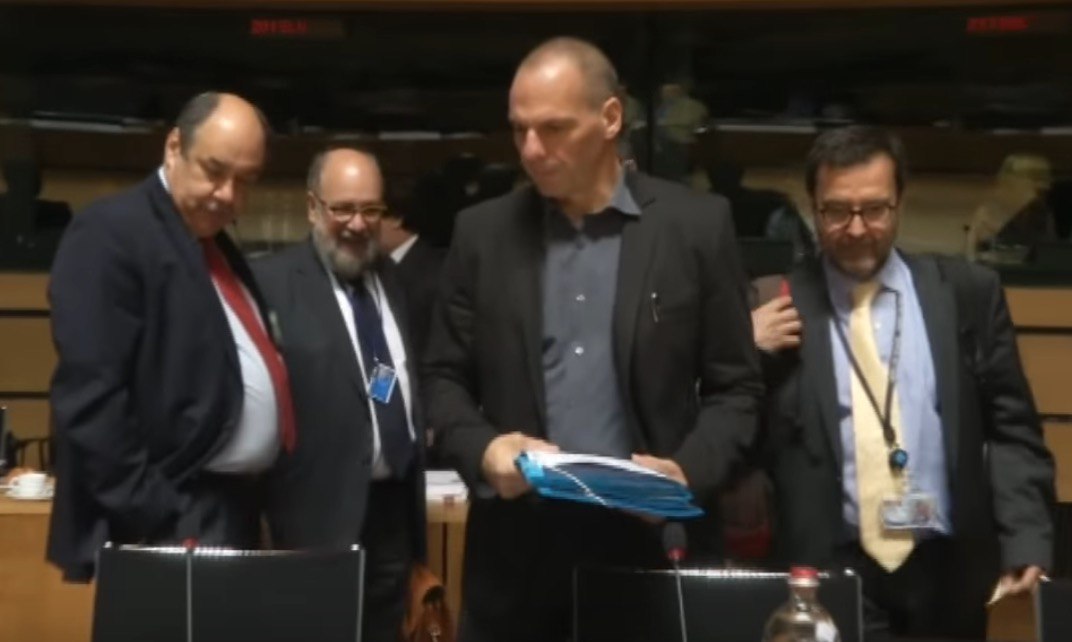

Jeroen Dijsselbloem (00:00:04): [inaudible] any other contributions. [inaudible] on the issue raised, uh, on the, the effects of the… Could also come back to it on the next agenda item, when we specifically look at the low interest rate, uh, climate, uh, the issue of the effects on insurance companies. Maybe we’ll come back to […] Read more
11 June – GREEK MoF ANTI-MoU Mk2

On 11th June – exactly a month after Varoufakis issued his comprehensive ANTI-MoU – a new version appears entitled ENDING THE GREEK CRISIS. In the meantime, PM Tsipras had (without Varoufakis’ approval/knowledge) conceded enormous primary surpluses (austerity). Varoufakis, despite his vociferous disagreement with PM Tsipras’ concessions, incorporated the new fiscal targets in this ANTI-MoU which […] Read more
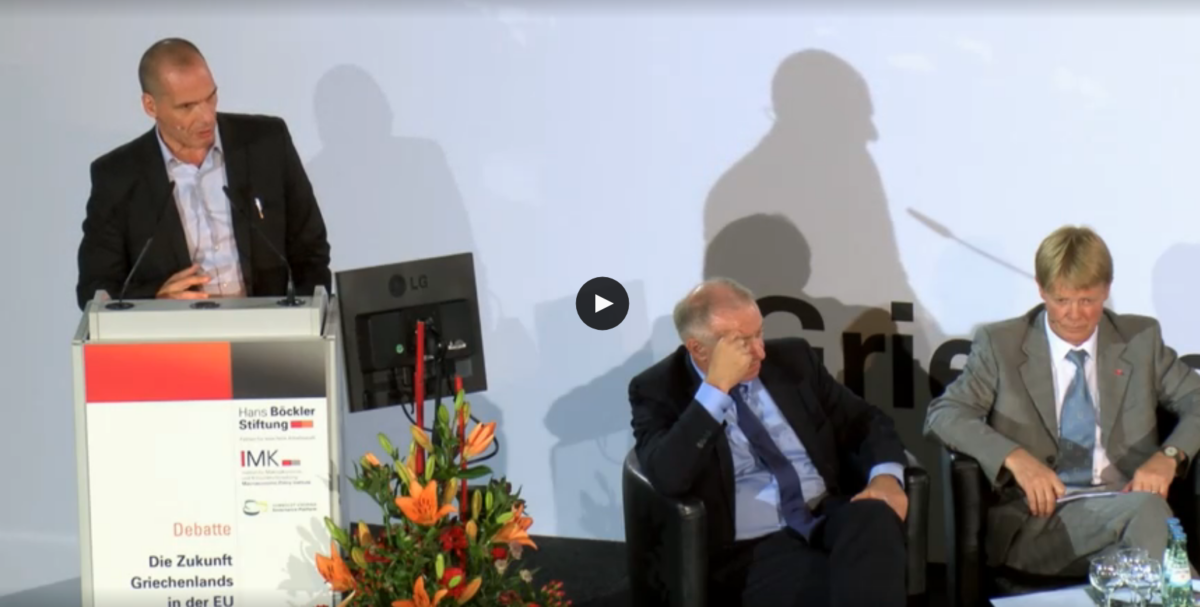
CLICK HERE FOR THE VIDEO Thank you for inviting me. Thank you for being here. Thank you for the warm welcome. Above all thank you for the opportunity to build bridges, to pave common ground, to bring harmony in the face of blatant attempts to sow the seeds of discord between peoples whose historic duty is to come […] Read more
On 5th June the Financial Times publishes Varoufakis’ revised proposals for restructuring Greece’s public debt. Read here. Read more
17 May – VAT Reform Proposal
On 17th May, following their verbal agreement with the IMF’s Poul Thomson to reduce the number of VAT bands to two while also reducing the VAT rates substantially, Varoufakis submitted a detailed VAT proposal to the troika (below). This was refined, simplified and costed a few days later. Download the refined version as Excel VAT […] Read more
11 May – Eurogroup in Brussels
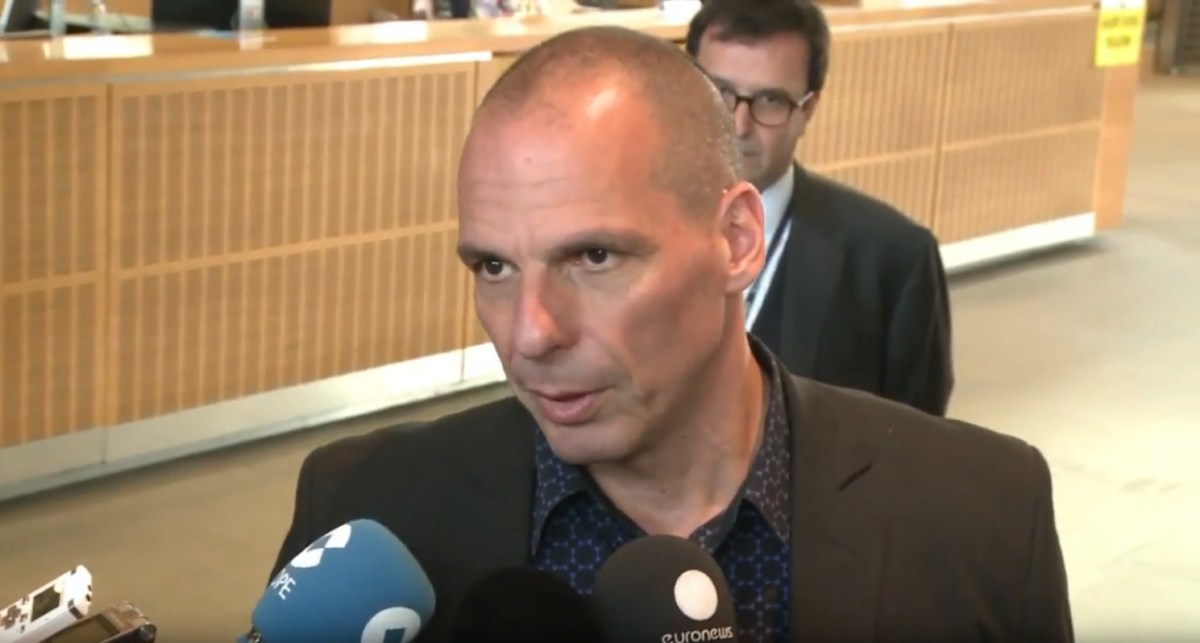
Actual communiqué:Jeroen Dijsselbloem: Let me try to, I won’t do much to this statement. Let me try once. What if I were to say, we therefore welcome the intention of the Greek authorities to accelerate their work with the institutions. By putting that way you are saying that it is your intention to put in the extra effort… It does not sound as if someone is criticising you. You are saying that we shall do what it takes.
Yanis Varoufakis: You are tempting me to say that I would like the institutions to say they same thing. But I won’t say that, because I want to be helpful. We shall accept this even though we state for the record that there are two sides and thus both must accelerate their efforts and rate of concession.
Jeroen Dijsselbloem: I am sure everyone is ready to continues putting in the work…
The Eurogroup today took stock of the state of play with the ongoing negotiations between the Greek authorities and the institutions. We welcomed the progress that has been achieved so far. We note that the re-organisation and streamlining of working procedures has made an acceleration possible and has contributed to a more substantial discussion. At the same time, we acknowledged that more time and effort are needed to bridge the gaps on the remaining open issues. We therefore welcome the intention of the Greek authorities to accelerate their work with the institutions, with a view to achieving a successful conclusion of the review in a timely fashion. The Eurogroup reiterated that its statement of 20 February remains the valid framework for the discussions. Once the institutions reach an agreement at staff level on the conclusion of the current review, the Eurogroup will decide on the possible disbursements of the funds outstanding under the current arrangement.

Speaker 1 (00:00): … closely and they’re supposed to conclude the package by June. On the statistics, let me draw your attention to the commitment to a man you know modified dependence of endemic statistics Institute as a start. A draft decision is now being discussed, involvement of experts from Eurostat. Uh, so there are […] Read more

On 11th May, 2015, Varoufakis issues, and submits for public scrutiny, his ministry’s ANTI-MoU – that is, a comprehensive policy framework for Greece’s recovery and growth. Read it here Read more
24 April – Eurogroup in Riga
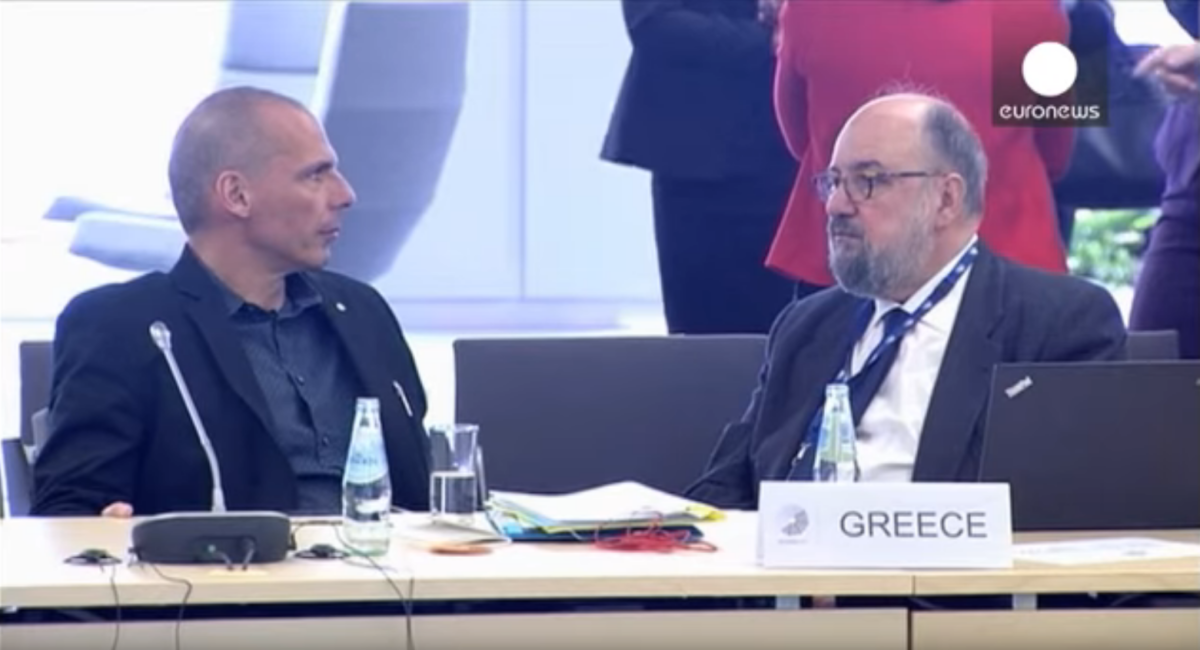

Jeroen Dijsselbloem (00:01:54): Uh, Pierre, [inaudible], welcome. Thank you for joining us. Um, the next item on the agenda is the,uh, situation in Greece. Uh, as you all vividly remember on the 20th of February and on the 24th of February, we agreed on, um, the starting point of the process and how the process […] Read more
1 April – Euro Working Group Teleconference

Thomas Wieser (00:00:02): Also uh have a discussion on the HFSF buffer and uh, we noted and know and knew uh, that uh, uh, that we hope industrious work streams ongoing both in Athens and in Brussels, as there is this tale of two cities where meetings uh, have to take place in different compositions […] Read more

Marco Buti (00:01): … coming in the next eh, in the next days and erm even if erm the Greek authorities manage to overcome erm the erm, the erm [inaudible 00:00:14] of the next couple of days, the situation would become… let’s say erm, pretty critical in early erm… in early April. So I think […] Read more
Between the 24 February Eurogroup and the 24 April Eurogroup, the Greek Ministry of Finance submitted the following detailed documents: March 15: Greek MoF Position Paper regarding current negotiation fiscal plans, structural reforms and the post-June period. Submission to the EG and EWG March 15: Greek MoF Reform Proposals in the context of the 20 […] Read more
24 February – Eurogroup Teleconference


Read the Greek reform list under discussion Jeroen Dijsselbloem (00:00): … of your responses or questions. And can I first, first ask the Commission, [inaudible] or Pierre, to uh, give their headlines. Speaker 2 (00:10): Uh, yes, uh, thank you, Jeroen. Well, uh, commission, uh, has, uh, carefully reviewed the reformed proposal sent yesterday to […] Read more
23 February – Greek reform list

Dear President of the Eurogroup, In the Eurogroup of 20 February 2015 the Greek government was invited to present to the institutions, by Monday 23rd February 2015, a first comprehensive list of reform measures it is envisaging, to be further specified and agreed by the end of April 2015. In addition to codifying its reform […] Read more
PRESS CONFERENCE STATEMENT BY YANIS VAROUFAKIS, IMMEDIATELY AFTER THE EUROGROUP MEETING OF 16TH FEBRUARY 2015 I am pleased to report that the negotiations were conducted in a collegial spirit, clearly revealing a unity of purpose – the purpose being to establish common ground, over the next 4 to 6 months, so as to reach a […] Read more

EUROGROUP MEETING – FEBRUARY 16, 2015 – BRUSSELS NON-PAPER FROM THE GREEK GOVERNMENT Outcome of Technical Discussions Technical discussion took place on Feb. 13-14 between Greek officials and representatives from the EU Commission, the ECB and the IMF to identify common ground between the two parties and discuss the content of the current MoU. On […] Read more
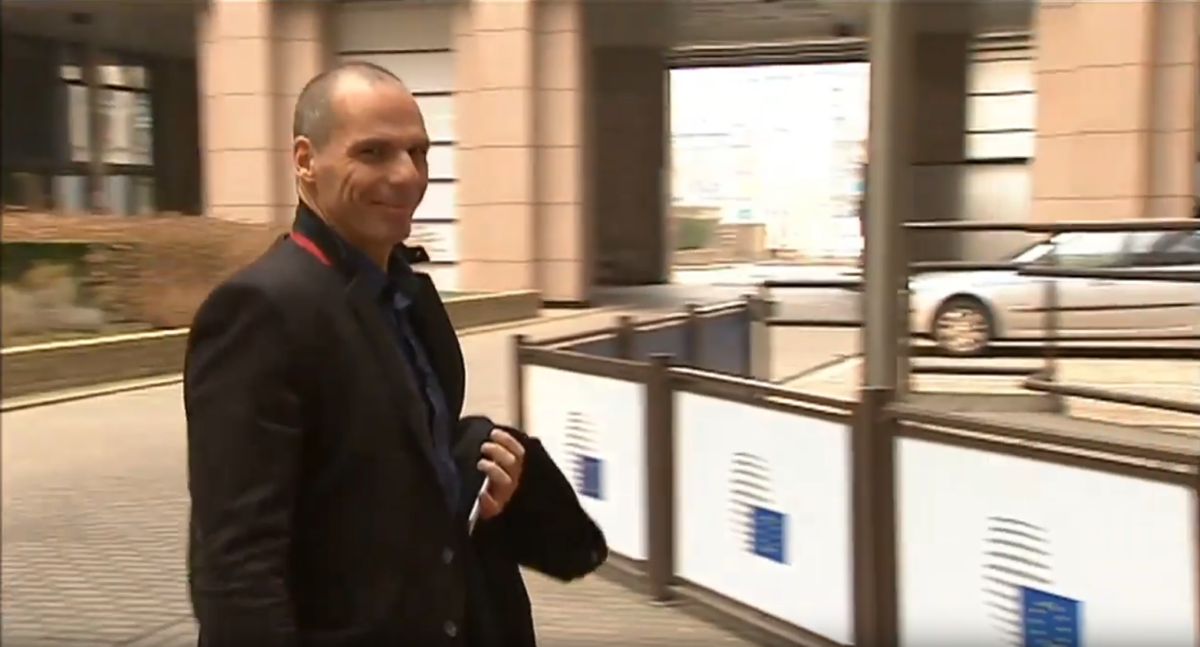
Mr President, Dear colleagues, This government’s task is to carry out the deep reforms that Greece needs to arrest the combined forces of deflation and negative debt dynamics, bring about investment-led recovery and, thus, maximise the net present value of our debt repayments to our creditors. The Greek government fully respects its commitments to our […] Read more
16 February – Eurogroup draft statements

Junker-Moscovici draft: 15 Feb – close of business Today, the Eurogroup took stock of the current situation in Greece, based on intensive dialogue between the new Greek authorities and the Institutions. The Greek authorities have expressed their commitment to a broader, socially just and stronger reform process aimed at durably improving growth prospects. In particular, […] Read more
EUROGROUP MEETING – FEBRUARY 11, 2015 – BRUSSELS NON-PAPER FROM THE GREEK GOVERNMENT On January 25th, Greek citizens sent an unequivocal signal of change and endorsement of the new social contract for political stability and economic security proposed by SYRIZA. The new government is committed to implement policies that will deeply reform Greece’s social economy, […] Read more
Mr President, (Jeroen Dijsselbloem) Dear Colleagues, It is a great honour for me to join this Eurogroup meeting as finance minister in the newly elected Greek government. On January 25th, the Greek people strongly mandated us to terminate the cycle of austerity that has caused economic damage and immense social costs. The new government led […] Read more
